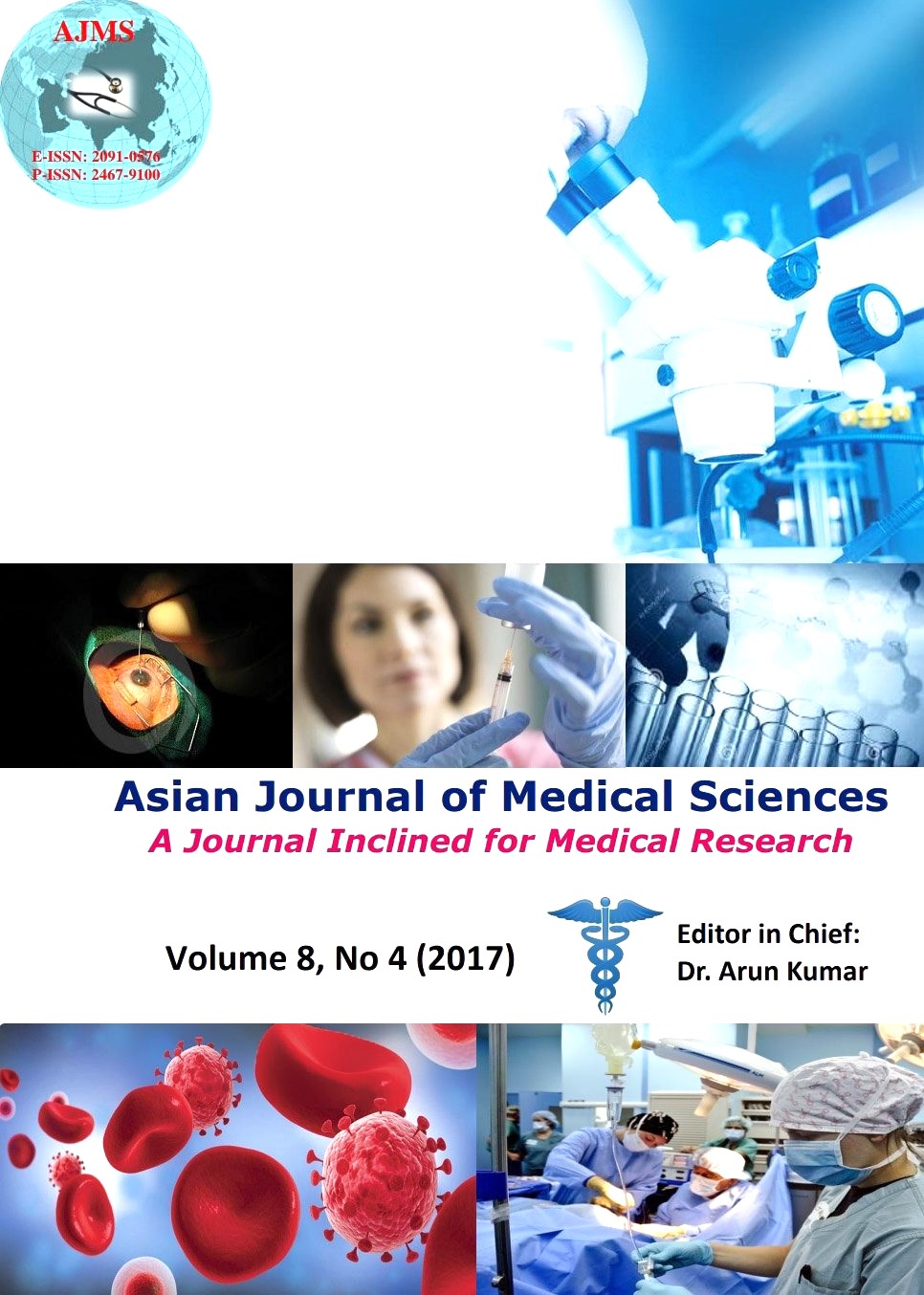Association of hypokalemic periodic paralysis with cystic Kidney disease- A case report
Keywords:
Hypokalemic paralysis, Cystic kidney disease, RTAAbstract
Hypokalemic periodic paralysis (HPP) is a rare heterogenous neuromuscular disorder presenting with acute weakness. Though most cases are known to be familial or primary there are other underlying secondary causes which require evaluation and if not corrected could lead to recurrent episodes.Distal renal tubular acidosis (RTA) is one such association which has been described. Type 1/Distal RTA is known to cause renal potassium wasting thereby leading to hypokalemia. Patients with Distal RT A are unable to acidify their urine. The causes of Distal RTA can be hereditary, congenital, acquired or idiopathic. Severe hypokalemia with RTA has been described along with Medullary sponge Kidney and other cystic lesions in the kidney. There have been previous reports of hypokalemic paralysis occurring secondary to RT A precipitated by cystic kidney disease. We hereby report one such of hypokalemic periodic paralysis secondary to distal RTA which was associated with cystic kidney disease.
Asian Journal of Medical Sciences Vol.8(4) 2017 57-59
Downloads
Downloads
Additional Files
Published
How to Cite
Issue
Section
License
Authors who publish with this journal agree to the following terms:
- The journal holds copyright and publishes the work under a Creative Commons CC-BY-NC license that permits use, distribution and reprduction in any medium, provided the original work is properly cited and is not used for commercial purposes. The journal should be recognised as the original publisher of this work.
- Authors are able to enter into separate, additional contractual arrangements for the non-exclusive distribution of the journal's published version of the work (e.g., post it to an institutional repository or publish it in a book), with an acknowledgement of its initial publication in this journal.
- Authors are permitted and encouraged to post their work online (e.g., in institutional repositories or on their website) prior to and during the submission process, as it can lead to productive exchanges, as well as earlier and greater citation of published work (See The Effect of Open Access).




